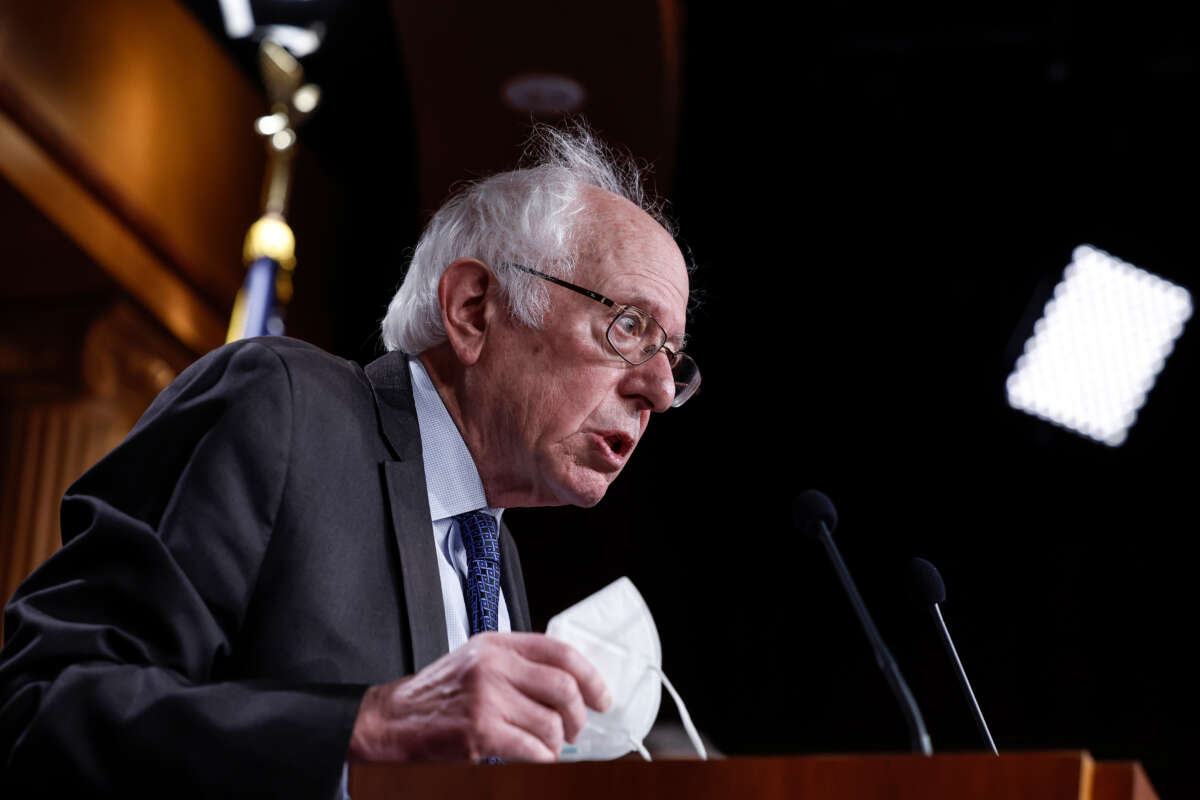Sen. Bernie Sanders on Wednesday announced plans to introduce legislation that would cap U.S. insulin prices at $20 per vial after Eli Lilly pledged to cut the list prices of its most commonly used insulin products by 70%.
Sanders (I-Vt.), the chair of the Senate Health, Education, Labor, and Pensions Committee, said in a statement that “this is what fighting back accomplishes” and urged two other major insulin manufacturers to replicate Eli Lilly’s move, which also includes capping monthly out-of-pocket insulin payments at $35 for many people with diabetes.
“At a time when Eli Lilly made over $7 billion in profits last year, public pressure forced them to reduce the price of insulin by 70%,” said the Vermont senator. “Now is the time for Sanofi and Novo Nordisk to do the same. Now is the time to end the greed of the pharmaceutical industry and substantially lower the outrageous cost of prescription drugs in America.”
In letters to the CEOs of Sanofi and Novo Nordisk — which together with Eli Lilly produce more than 90% of the global insulin supply — Sanders wrote that “people with diabetes should not be forced to pay $98 for a vial of insulin that costs just $8 to manufacture and can be purchased in Canada for just $12.”
“I urge you to join Eli Lilly in substantially lowering the price your company charges for insulin and make certain that all Americans can purchase this lifesaving drug,” added the senator, who has been scrutinizing the trio’s business practices — including price collusion — for years.
“Let’s be clear: Insulin is not a new drug,” Sanders continued. “It was discovered 100 years ago by Canadian scientists who sold the patent rights of insulin for just $1 because they wanted to save lives, not make pharmaceutical executives extremely wealthy. And yet, as a result of unacceptable corporate greed, the price of insulin has gone up by over 1,000% since 1996, causing 1.3 million people with diabetes to ration insulin last year while your companies made billions of dollars in profits. That is absolutely unacceptable.”
Eli Lilly’s announcement was welcomed as a victory for people with diabetes who have been campaigning tirelessly for years to bring down insulin prices in the U.S., where some patients have been forced to pay more than $1,000 a month for the lifesaving medicine.
But the company’s move also drew skepticism as advocates remain wary of the limitations of Wednesday’s pledge and of Eli Lilly’s commitment to keeping prices low, particularly given the pharmaceutical giant’s history of lobbying against efforts to rein in prescription drug costs.
In a footnote at the bottom of its Wednesday press release, Eli Lilly states that “government restrictions exclude people enrolled in federal government insurance programs from Lilly’s $35 solutions.”
People on Medicare are covered by the Inflation Reduction Act’s $35-per-month cap on insulin copayments, but low-income people on Medicaid don’t appear to be eligible for Eli Lilly’s price-cap program.
Additionally, Eli Lilly’s 70% price cut for Humalog — the company’s most commonly prescribed insulin product — won’t take effect until the fourth quarter of this year, “giving Lilly seven more months of high prices even as they are lauded for their corporate responsibility,” noted The American Prospect’s Robert Kuttner.
“And since Lilly caps out-of-pocket costs to patients but not necessarily prices charged to insurance companies,” Kuttner added, “the result could be cost-shifting and higher insurance premiums.”
Such caveats led campaigners to emphasize the necessity of federal action to guarantee that insulin is available and affordable for all who need it.
“Insulin manufacturers have shown time and time again that they will put their CEOs’ profits over patients’ lives,” said Kristen Whitney Daniels, the co-leader of T1International’s federal working group and a person living with Type 1 diabetes. “That’s why the government also needs to regulate insulin manufacturers to hold them accountable to ensuring the human right to insulin.“
Press freedom is under attack
As Trump cracks down on political speech, independent media is increasingly necessary.
Truthout produces reporting you won’t see in the mainstream: journalism from the frontlines of global conflict, interviews with grassroots movement leaders, high-quality legal analysis and more.
Our work is possible thanks to reader support. Help Truthout catalyze change and social justice — make a tax-deductible monthly or one-time donation today.
